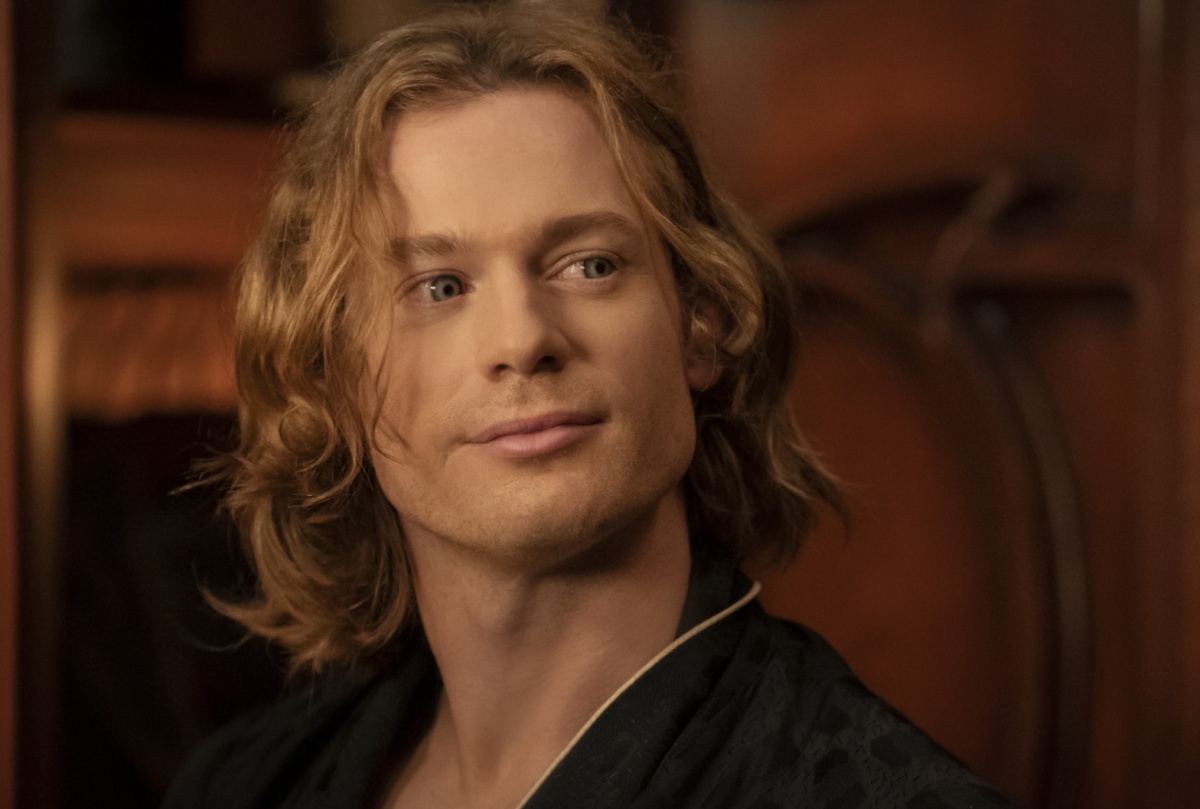What Do Our Monsters Mean Today?

***Spoilers for AMC+’s Anne Rice’s Interview With the Vampire***
Vampires are back in vogue. They never really went away, but like all supernatural trends, there are ebbs and flows. Sometimes witches are big, sometimes vampires. Werewolves are frequently attempted, but often never get the pop culture clout of their cousins. With the new adaptation of Interview with the Vampire on AMC+, not only are vampires being discussed, but it is happening in a richer context of overt queerness, race, and sexuality.
There’s no denying that we have had BIPOC and queer vampires in fiction before, including some really prolific ones that are known to those read beyond the mainstream. Entire books and dissertations have been about what monsters represent in terms of gender, sex, and the norms of our culture and society. But when the default is whiteness, even within the supernatural, and subtext is the way in which these issues are addressed when that default is changed, that complicates the audience experience.
As someone who watched the screeners for AMC+’s Interview, I knew where the Louis and Lestat relationship was going and it was chilling—but that chill was always there. Lestat and Louis are privileged vampires who feed off the less fortunate in Anne Rice’s novel. With Louis now being a Black man of mixed heritage in New Orleans during the 1910s and a gay man, these things have to factor into the story, otherwise changing him into a man of color feels more for save of diversity than telling a diverse story.
Fans were horrified at the scene of Lestat beating Louis in episode 5, and they should be. I also agree that a trigger warning would have been necessary, especially since they’d done one for suicide in the first episode. But I also find it interesting that a monster acting like a monster is something we are still processing. There is this duel desire I see to want to love the monster for what they have represented, especially among the marginalized, but it also erases that some creatures live in tandem with us. A wealthy white, powerful vampire who does not value life and has a complex (to say the least) relationship with love, is not going to be a romantic comedy. Yes, I understand the desire for a romantic healthy gay couple on television. But even in Anne Rice’s text—they are not that.
To show a character murder, punch a man’s head in with his fist, use sexual violence against women, and then kill his partner’s love is already abusive. From the moment Lestat is at Louis’s family house and characters call Lestat the devil, we are meant to empathize with Louis (and we should), but … they are also not wrong. Vampires are dark. They are devils. Even Louis, who is playing at being a good person, isn’t a reliable narrator and that is (at least to me) the appeal of this entire series. Creatures who have the powers of gods, playing at being human in some cases, and for many others just playing with their food. Like cats.
As we add more diversity to the supernatural drama and vampires, werewolves, witches etc. stop being a metaphor for marginalized people, we need to reestablish the concepts of power we have crafted around them. More so the answer to these questions is complicated, changes, and is not always going to leave people with an answer they love. When it comes to Lestat and Louis, I’m sure there are people who watched this moment and are asking themselves: “Is it okay if we like this show and this pairing?” Is it okay to like an abusive fictional couple? And the answer is yes. If you know that is abusive, don’t make excuses for it, and respect people’s boundaries, then it is fine. It is fiction. Dark, gothic fiction. It is not a reflection of your morals to be drawn to the darkness in fiction. This is a distinction often lost in today’s discourse, especially online and in fan communities.
Monsters exist as the darkest parts of ourselves and sometimes it is nice to relish in that. To feed that part in the safety of a fictional space. As BIPOC and marginalized folks, we sometimes want to play with that the most, having been forced into believing that respectability was the pathway to freedom.
This new era of supernatural fiction is more diverse and inclusive than ever before. This means the subtext now has the power to shape its own dark narratives. The question is, will we be allowed to without it being seen as indicative of some larger moral failing? When our monsters stop being metaphors to explore the darker side of what humanity offers, what is their point?
(image: AMC)
Have a tip we should know? [email protected]
